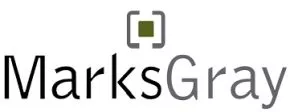- within Intellectual Property topic(s)
- in United Kingdom
- with readers working within the Metals & Mining and Retail & Leisure industries
- within Intellectual Property, Technology and Immigration topic(s)
Lise Sobéron spent two years developing a mobile app called Wondermum to help parents in France with local listings, workshops, chat rooms, and advice. Her company is based in Normandy.
On April 1, 2025, DC Comics sent a letter asserting that the use of "Wondermum" infringed its iconic brand Wonder Woman, arguing that the name and graphics of Sobéron's app were too close to its trademark.
Naturally, Sobéron insists her use is different: the spelling is British ("mum"), the logo is distinct (a pink-purple hexagon with "WM" letters), and the service is aimed at parents – a very different market than superhero comics.
The Conflict: A David vs. Goliath Story
To Sobéron, the claim from DC Comics came as a shock. Her app had been live for only a short time when she received the legal notice. DC's letter suggested that consumers might associate her parenting app with the Wonder Woman franchise – despite the fact that there is no superhero content, capes, or comic imagery to be found.
She argues that the name "Wondermum" is about celebrating mothers who manage it all, not mimicking a fictional hero. Yet DC's position is that the "Wonder" prefix, tied to a powerful female character and decades of branding, is part of their protected intellectual property.
If she loses the fight, Sobéron estimates it could cost €20,000-€30,000 to rename and rebrand. Because of this, she has launched a crowdfunding campaign and publicly framed the dispute as a fight for creative independence.
That may well be, because this case definitely resonates in the broader IP world.
Why the Case Matters Beyond Comics (and Apps)
There are several issues highlighted by this dispute:
- Trademark protection is not just for logos – it is for perception.
DC Comics' argument likely hinges on "likelihood of consumer confusion," a key test in trademark law. It does not matter whether the logos or colors are the same – what matters is whether a consumer might think the two brands are connected or endorsed by each other.
Even if your name feels unique, ask whether it could sound too similar to a famous mark in a related field. Before you fall in love with your brand name, perform trademark searches (not just locally, but internationally) to see what is already registered.
- Size matters (and not in a fair way).
Large companies like DC Comics have the resources to aggressively protect their trademarks. To them, allowing small uses to slide can set a precedent that weakens their global rights. For small businesses, that often means an expensive fight just to keep a name.
Trademark law does not always level the playing field. If you are launching a product or brand, factor in the possibility that a bigger company could object, even if your intent is innocent. Early legal advice can help you avoid costly surprises.
- Rebranding can hurt more than you think.
For Sobéron, this is not just a design update. Changing the app's name would mean losing recognition, rebuilding her user base, and redoing everything from the app store listing to the website domain.
A name change is not just about printing new business cards. It can reset your marketing momentum and customer trust. Plus, it is often incredibly costly. Prevent this issue by clearing your brand name before you invest in it.
- Inspiration is fine. Association is tricky.
The name "Wondermum" was inspired by her 11-year-old daughter – a loving nod to moms everywhere. But the line between inspiration and infringement can be blurry, especially when similar words evoke famous characters or brands.
You can use common words – but context, presentation, and audience matter. Avoid names that could ride on another brand's goodwill, even unintentionally.
The Bigger Picture: Protecting Creativity Without Overreach
This case raises a familiar question: where is the line between fair protection and overreach? DC Comics has a legitimate interest in defending a global brand. But many observers see this as another example of how trademark law can be used to pressure small creators who lack the means to fight back.
Regardless of how the "Wondermum" case ends, it is a reminder that intellectual property protection is a double-edged sword, essential to safeguard innovation, but powerful enough to stifle it when wielded without restraint.
The content of this article is intended to provide a general guide to the subject matter. Specialist advice should be sought about your specific circumstances.


